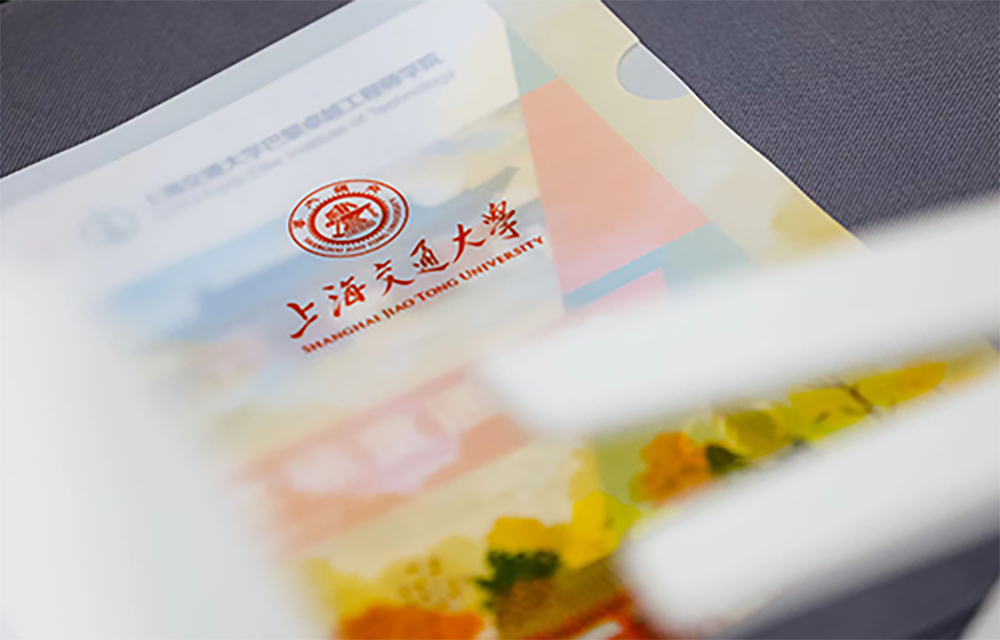
On the afternoon of August 29, the 2025 undergraduate freshman orientation of SPEIT was successfully held in the Lecture Hall of the Wenbo Building Conference Center.
Attendees included Chen Cailian, Chinese Dean, Lu Jialiang, Vice Dean and Coordinator of Information Engineering, Zhong Shengyi, Vice Dean and Coordinator of Mechanical Engineering , Wei Guanghua, Director of the Academic Innovation Center and Coordinator of Energy and Power Engineering , Zhao Jingwen , teacher of SJTU Psychological Counseling Center, Lü Jiangying, Director of Student Affairs, Li Junyan, Director of Academic Affairs, Liu Jing , Secretary of the Youth League Committee, and all new undergraduate students. The event was chaired by Yao Xue, Vice Secretary of the CPCC of SPEIT.
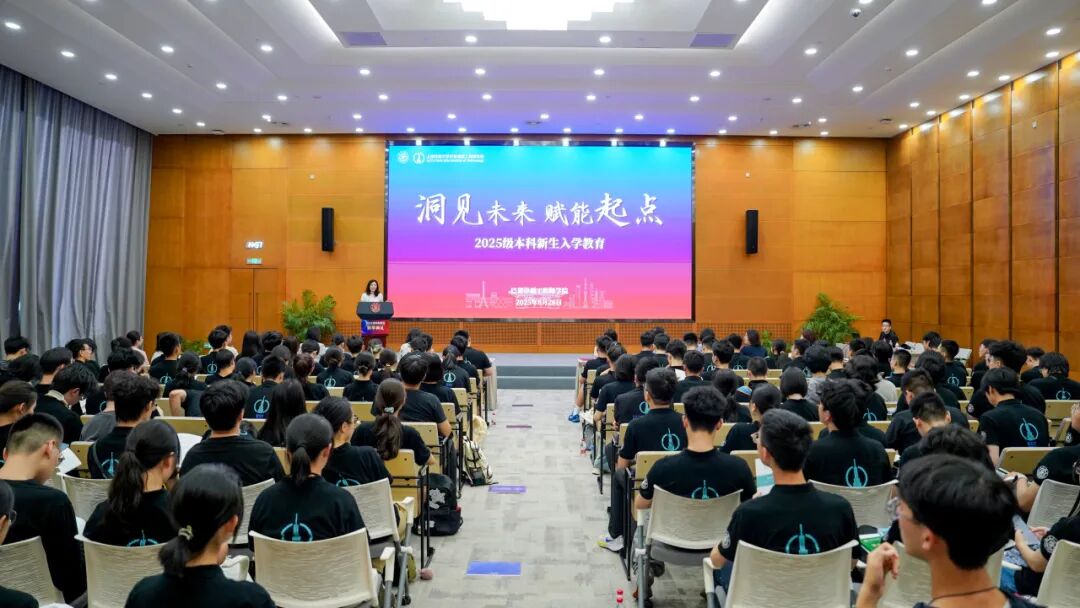
01
Future Outlook
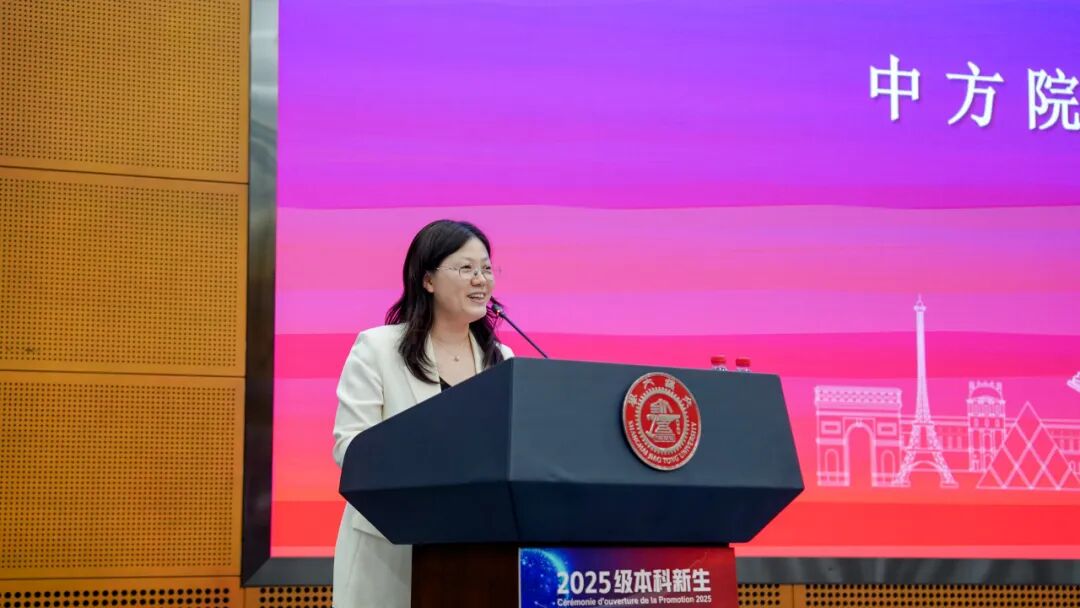
Chen Cailian first painted a blueprint for the next 6.5 years for the freshmen from a high-level perspective. She pointed out that the world today is undergoing a new round of technological revolution and industrial transformation, with continuous breakthroughs in fields such as artificial intelligence, new energy, and new materials, driving scientific research and engineering practice to new heights. She emphasized that as outstanding students of the new era, they must stand at the forefront of the times, embrace the future of the world, and shoulder their mission.
She emphasized that at SPEIT, there are no declining disciplines—only a mindset focused on advancement. Every field of deep specialization can achieve remarkable growth when aligned with contemporary demands, grounded in solid fundamentals, and fueled by innovative capabilities. She encouraged freshmen to cultivate three critical competencies: First, build a robust foundation in mathematics and physics to foster the confidence and strength for innovation; second, develop interdisciplinary and systems thinking to tackle complex engineering challenges; third, enhance humanistic literacy and global competence to demonstrate leadership in cross-cultural exchanges and international collaborations.
02
Introduction to Majors
During the “Major Introduction” segment, three coordinators provided an in-depth analysis of three engineering majors from the perspective of planners and leaders in program development. Drawing on industry frontiers and alumni case studies, they clarified career pathways for new students.
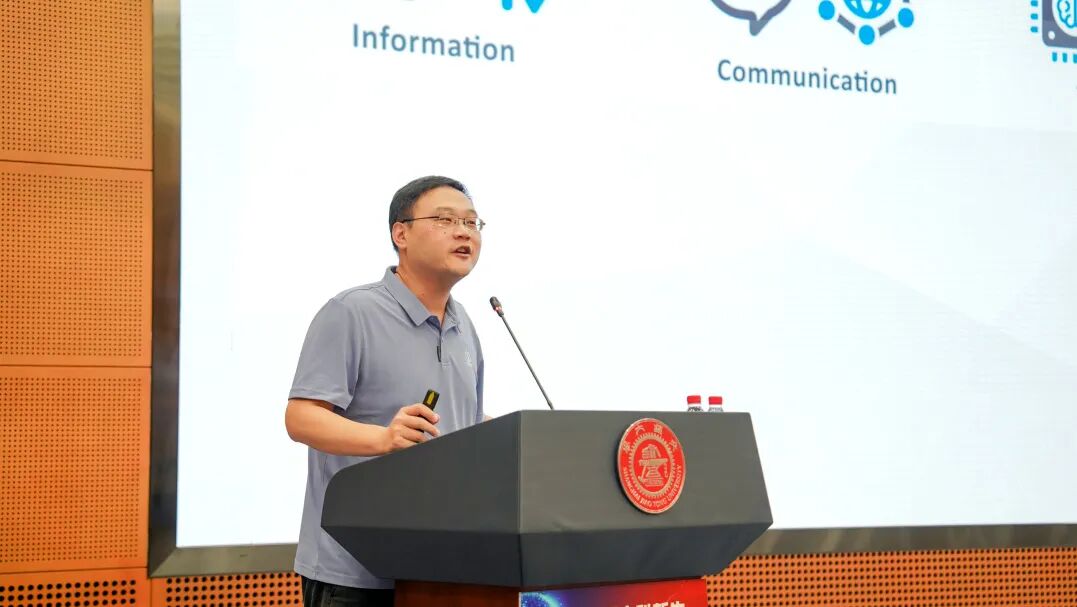
Lu Jialiang focused on the Information Engineering major, vividly illustrating its broad application prospects in cutting-edge fields such as artificial intelligence and data science. He emphasized that a solid foundation in mathematics and physics is the core support for deepening expertise in this field, encouraging freshmen to build a strong knowledge base and actively engage in the wave of innovation and practice in the AI era, realizing value through technological breakthroughs.
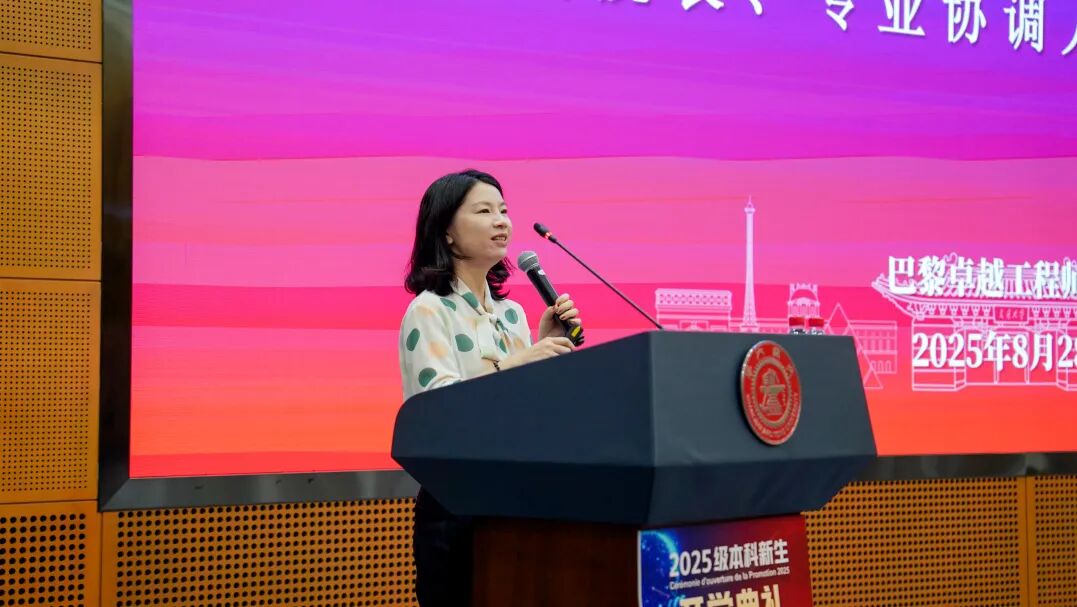
Zhong Shengyi closely aligned with the industrial development trends of “smart manufacturing,” “robotics and artificial intelligence,” and “advanced materials,” elucidating the irreplaceable pivotal role of “large-scale machinery” in high-end manufacturing and major equipment research. She emphasized that mechanical engineering serves as a crucial foundation for the strategy of building a strong industrial nation, enabling freshmen to deeply recognize the strategic value of this major.
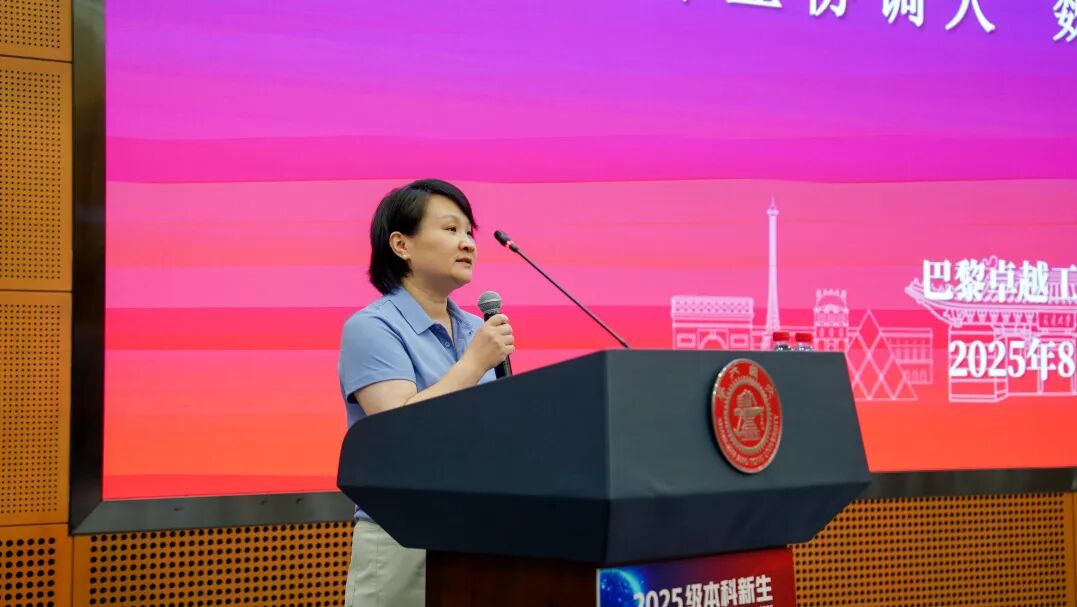
Wei Guanghua emphasized that the transformation in the energy sector is intrinsically linked to human sustainable development within the broader context of global energy transition and green, low-carbon development. She encouraged students to connect their professional studies with global challenges, fulfilling social responsibilities.
03
Diverse Support
SPEIT is committed to providing diverse services to support students' growth. During the “Growth and Academic Guidance” session, relevant staff members gave detailed introductions about campus life and academic arrangements to help freshmen quickly adapt to the campus environment.
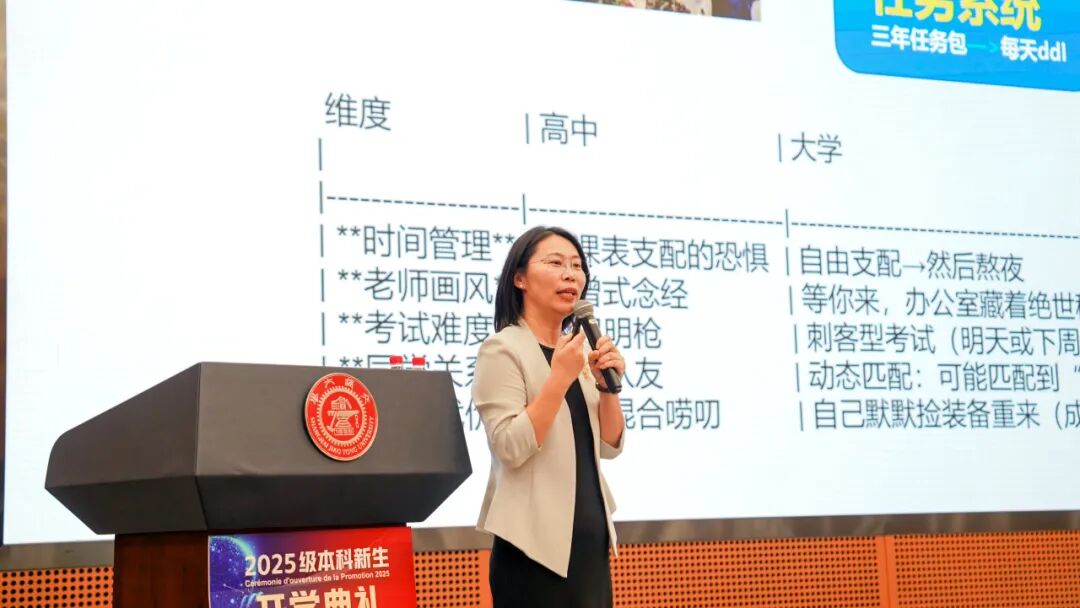
Lü Jiangying kicked off her session with a " Guide for Avoiding Confusion,” outlining six key differences between high school and university life while offering “stress-relief strategies” and coping mechanisms. She also introduced the college's comprehensive student support platforms, career guidance resources, and psychological counseling services.
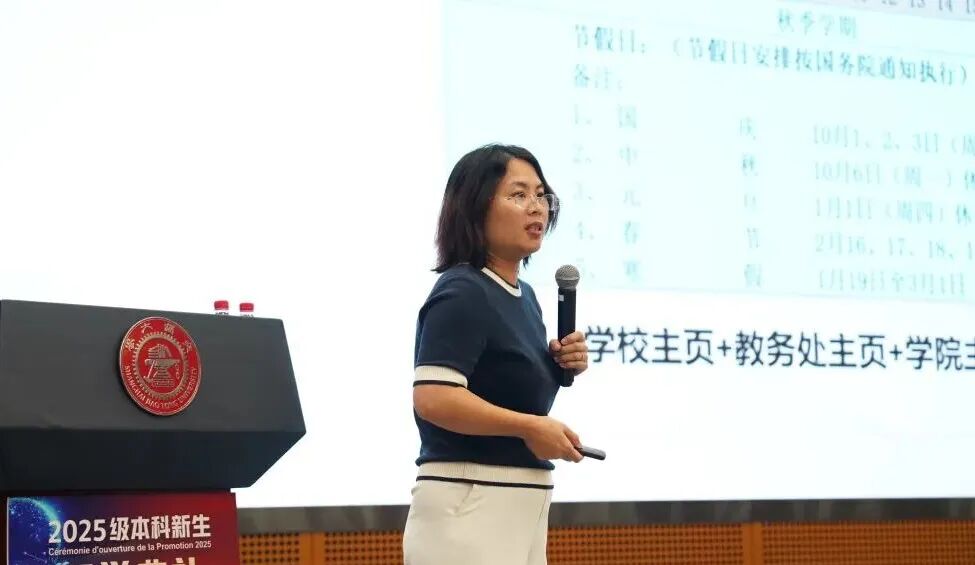
Li Junyan outlined the academic development framework for freshmen by interpreting the training program and academic regulations from four dimensions: “training plan, academic requirements, AI resources, and management team.”
04
Mental Health Support
To help freshmen better adapt to university life and build psychological resilience, SPEIT specially invited Zhao Jingwen to deliver a lecture titled “Follow Your Heart, Bravely Embark on a New Chapter of Life,” focusing on psychological challenges during the university adjustment period and coping strategies.
She pointed out that freshmen transitioning from high school to college face seven core pressures, including academics and self-care. Using a “Life Change Units in Major Life Events” chart, she quantifies the psychological impact of events like “enrollment or departure” and “residential relocation,” helping new students intuitively grasp the challenges of this period.
To address “how to find rhythm in college,” she proposed using the “2-3-5” micro-start method to learn more actively; building a multidimensional social support network through “nonviolent communication”; and actively seeking psychological counseling as solutions.
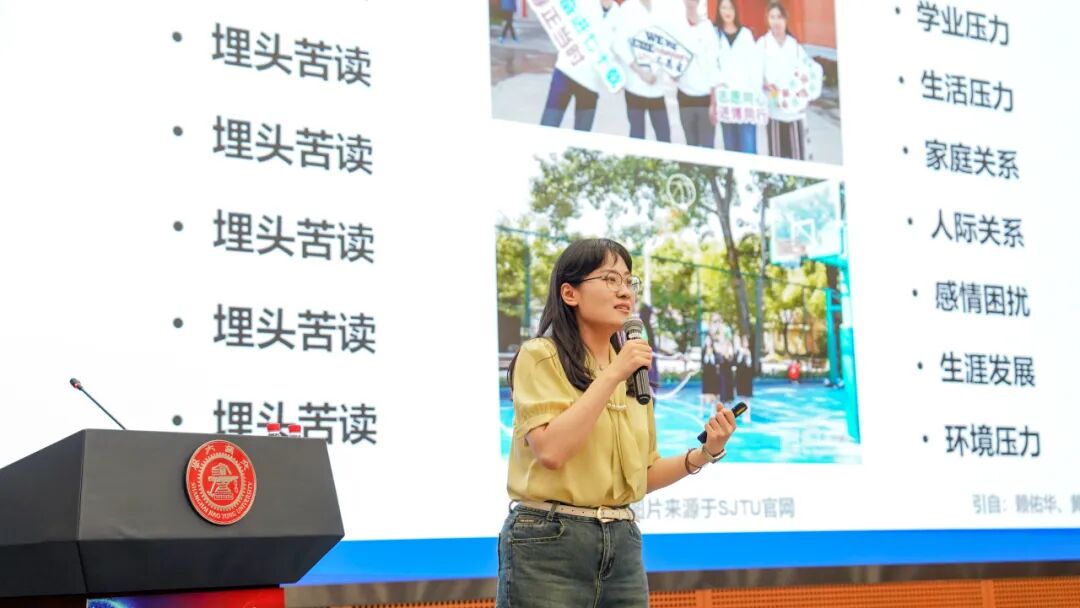
This orientation has provided new students with a more comprehensive understanding of SPEIT's academic specializations, educational framework, and developmental pathways, outlining a clearer vision for their upcoming university journey. May each student pursue their aspirations with determination, forging a uniquely remarkable chapter of youth at SPEIT!




